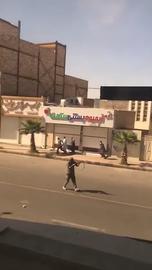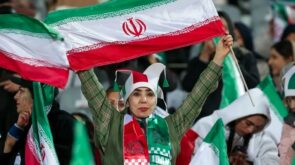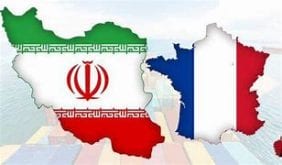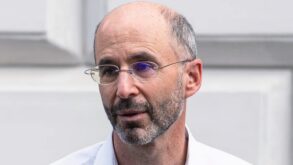CHRI – Update on September 30, 2023: Since yesterday, Iranian state security forces attempting to suppress anti-state protests in the city of Zahedan have injured at least 29 individuals—including eight children.In the provinces of Sistan and Baluchestan, specifically in the cities of Zahedan, Khash, and Mirjaveh, at least 51 individuals have been confirmed as arrested since last night, as reported by Haalvsh Baluchi news.
September 29, 2023 – At least four children were among at least 23 peaceful protesters who were injured when Iranian authorities opened fire on protests in the Iranian city of Zahedan and elsewhere today—one day before the anniversary of “Bloody Friday,” when some 100 protesters were shot and killed on one day there last year.
“This is a horrifying display of indiscriminate violence by the Islamic Republic as the state attempts to suppress peaceful demonstrations,” said Hadi Ghaemi, executive director of the Center for Human Rights in Iran (CHRI). “They deserve unwavering international support.”
“Ethnic and religious minorities in Iran remain extraordinarily vulnerable to relentless oppression,” added Ghaemi.
“It is imperative for the international community to shine a spotlight on this violence and to hold Iranian officials accountable in international courts, invoking the principle of international jurisdiction,” he said.
Videos and photos shared on social media by the Haalvsh Baluchi news agency showed children being treated in hospitals and injured protesters being carried to safety, as well as protesters trying to flee amid heavy gunfire.
As the anniversary of the “Bloody Friday” massacre approaches, there is a heightened concern for further violence and potential bloodshed. The Iranian authorities have persistently resorted to indiscriminate force and arbitrary arrests despite widespread peaceful protests.
In a remarkable show of resilience, peaceful demonstrations have continued every Friday since the “Bloody Friday” massacre. Chants demanding the release of political prisoners and expressing discontent with the regime, such as “Free political prisoners” and “Death to the dictator,” have resounded throughout the protests.
Obstructed Investigations and Persecution of Sunni Religious Leaders
Efforts to investigate the massacre have faced obstruction by Iranian officials, as highlighted by Fadahossein Maleki, a member of Parliament from Zahedan, in a recent interview on September 28.
In his sermon today, Mowlavi Abdolhamid, the Sunni Friday prayer leader of Zahedan, reiterated the urgent need to hold those responsible for the “Bloody Friday” massacre accountable. He emphasized that the families of the victims seek the implementation of Islamic law concerning the perpetrators.
The Friday prayer leader’s condemnation comes amidst a prolonged campaign orchestrated by the Iranian government to suppress dissent among Sunni religious leaders, including against Abdolhamid and his family, particularly in his home province of Sistan and Baluchestan and in Kurdish-populated provinces.
While religious and ethnic minorities in the Islamic Republic have long been oppressed, the state’s targeting of Sunni clerics intensified after anti-government protests swept across Iran in the wake of the September 2022 death in state custody of 22-year-old Mahsa Jina Amini.
Many Sunni clerics spoke out strongly against the state’s violence against peaceful protesters. While state security forces killed over 500 protesters across the country and arrested approximately 20,000 people from all ethnic and religious backgrounds, Baluchis and Kurds bore the brunt of the state’s lethal crackdown, with the highest number of casualties taking place in Sistan and Baluchistan province and in the Kurdish areas of the country, respectively.
Sunni clerics have also criticized the state’s disproportionate use of the death penalty against ethnic minority communities such as Baluchis and Kurds—including its heavy use for drug offenses, which violates international standards that allow capital punishment only for the “most serious” crimes, which do not include drug offenses.
In addition, the clerics have spoken out against the indiscriminate shooting by state border guards of couriers in both the Baluchi and Kurdish areas who sell goods over the border.
As a result, these religious leaders have become targets for heightened persecution by a government that sees any peaceful dissent as a potentially existential challenge to be crushed—especially when the criticism comes from highly respected figures in their respective communities.
Protesters also continue to be shot, beaten and detained for peacefully demanding justice.
 Shabtabnews In this dark night, I have lost my way – Arise from a corner, oh you the star of guidance.
Shabtabnews In this dark night, I have lost my way – Arise from a corner, oh you the star of guidance.



